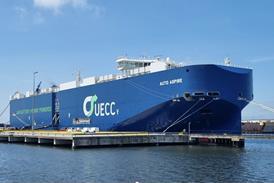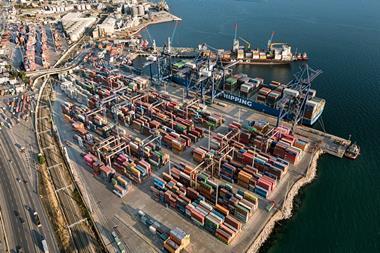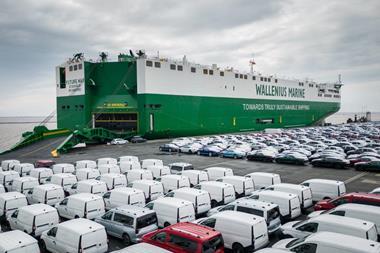Outsourcing supply chain operations is not a new concept; for nearly as long as there have been supply chains, there have been opportunities to reap the benefits of outsourcing. What is new is the extent to which outsourcing provides clear and distinct advantages to high volume manufacturers such as carmakers and equipment manufactures, particularly for the outbound supply chain.
In the automotive industry there are four main reasons for outsourcing the outbound chain: to grow the core business, to manage demand volatility, to increase visibility, and to manage the complexity of today’s dynamic supply chains.
There is still uncertainty in the markets, but fortunately almost daily you can read stories asserting that there are strong growth indicators. Trends are finally positive and the silver lining of the (still passing) storm clouds is that companies can now focus on their core business to drive profitable growth. This is an exciting time and during this growth period the supply chains are also evolving and are certainly not simpler or less important. On the contrary managing the outbound supply chain is even more important. How the chain is managed however is evolving as leading companies move from outsourcing parts of their business to creating partnerships that take advantage of the global resources and skill set of their logistics partners. Creating these partnerships allows both companies to focus on their core business and both companies to realise record growth while supporting each other.
Even after refocusing on core products, most businesses are challenged by the volatility in consumer demand that accompanies the unsteady global recovery–this challenge all but requires an outsourced solution. Rapidly fluctuating demand signals have wreaked havoc on supply chains over the past two years. Trying to react to those signals further increased the bullwhip effect as companies were not sure which way to turn to manage the volatility.
However, this was not the case with all companies or manufacturers. Those that performed best during the crisis and continue to perform well today are those that have created partnerships for managing the supply chain. These partnerships are not only the basic sharing of demand signals found in traditional sales and operations planning (S&OP), but have moved beyond S&OP and are working together to look at the sources of the volatility and responding to the market. By sharing critical information the demand volatility can be understood and managed.
Sharing critical information with your suppliers, and even your customers, does not come naturally. Therefore, increased visibility into your supply chain is the next major benefit of outsourcing your supply chain.
Real-time visibility into global supply chains means being able to respond to changing conditions immediately. Knowing what happened in the past is interesting at best; misleading at worst.
Enhanced visibility is just the starting point of realising the value of outsourcing your supply chain. A deeper value comes from finding the right external partner and taking advantage of their advanced analytic and business intelligence tools. This information can be used by your outsourced partner for network design and analyses, emissions tracking and reporting–and most of all ensuring trade compliance in today’s dynamic and complex business environment.
The ever increasing complexity of today’s supply chains is the most compelling reason for outsourcing it. Moving into new regions and new businesses becomes a simpler and less risky process with a partner aligned with your processes and strategy. A true partner can manage your supply chain in the best manner possible, and the tighter systems integration that comes along with partnership ensures you have the KPIs needed for continuous quality improvement.
A recent study by Karen Butner of the IBM Institute for Business Value found that the companies that performed best throughout the global financial crisis had outsourced supply chains with strategies in place to cultivate partnerships and collaboration. Isn’t this how your company should operate too?
































